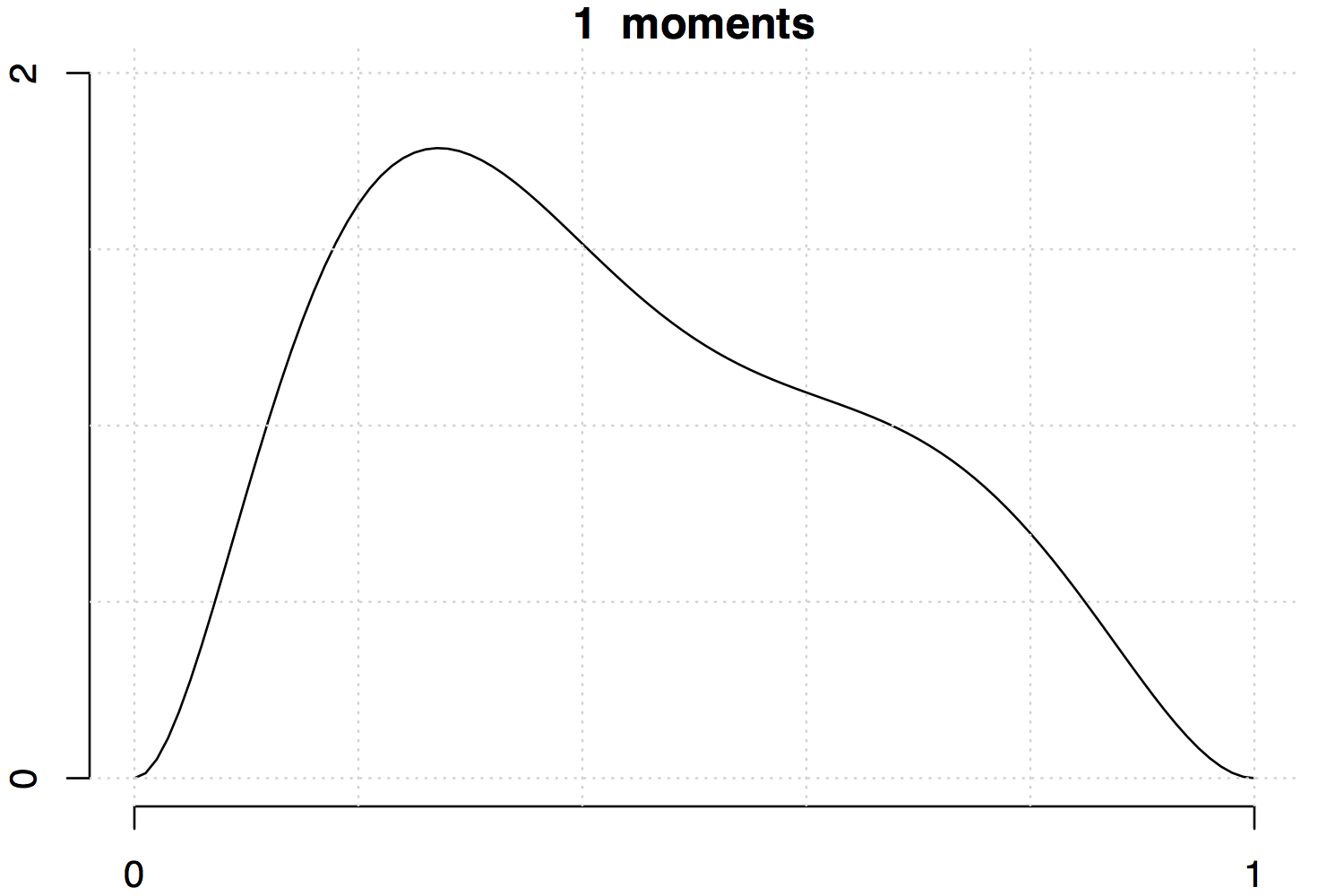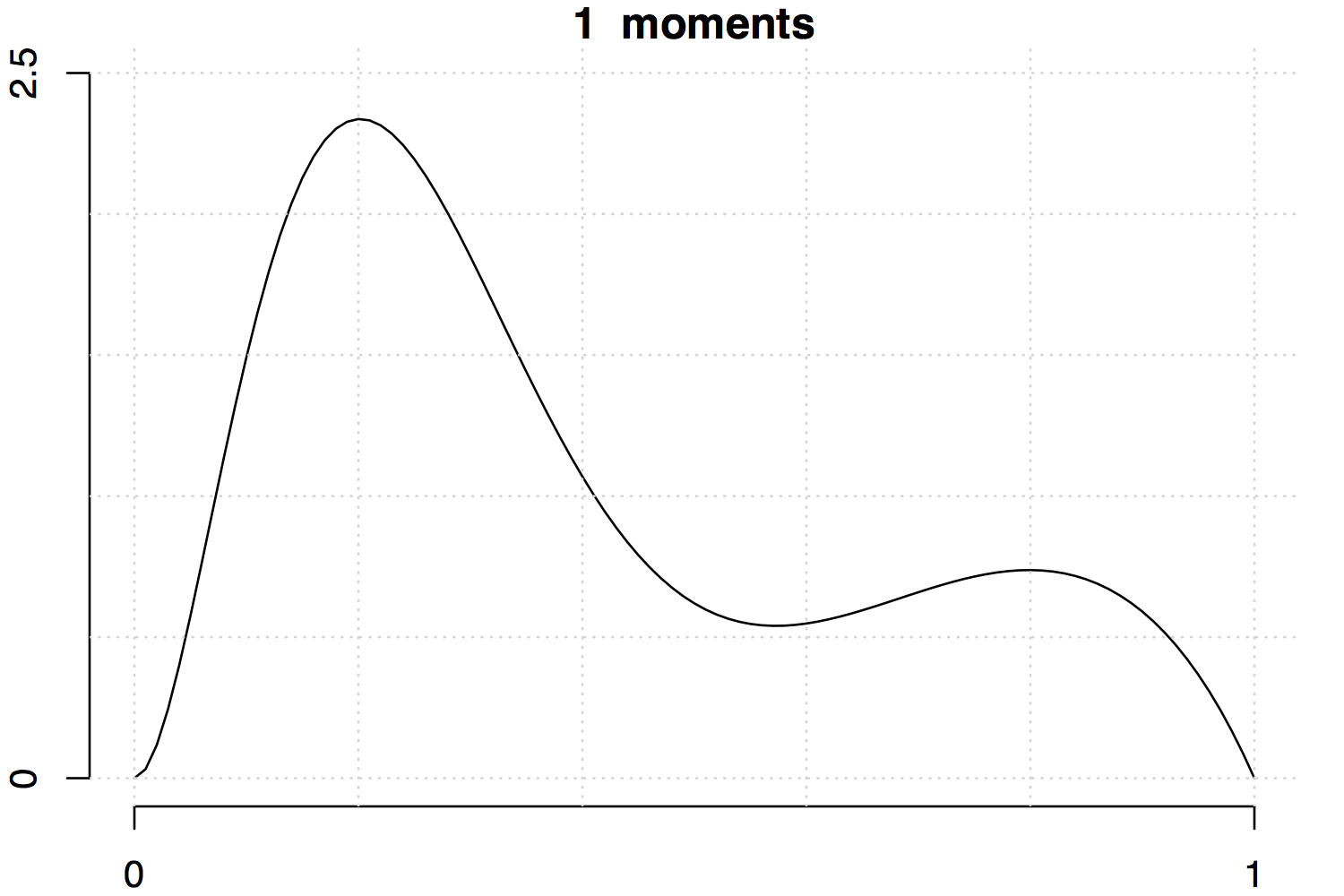Suppose I have a large sample drawn from a continuous distribution, size $n$, and $2 < m\ll n$ moments from that sample. Alternatively, suppose I have been given those moments by an angel, oracle, theory or fiat. Is there a named distribution, or a natural method of constructing distributions, that lets you exactly match m moments for an arbitrary m?
I know that a finite number of moments will not uniquely determine a distribution. To narrow it down a little bit, let's limit it to distributions that are differentiable (and I presume analytic) and that simplify to the normal distribution for functions with arbitrary first and second moments and skewness, excess kurtosis and higher moments = 0.
I would also strongly prefer a distribution that can be strictly positive for some set of moments and/or coefficients of the distribution function.
Instead of the usual central moments, I would accept a solution posed in terms of raw moments, or normalized moments, or cumulants if that makes the problem easier or produces a more interesting result (with the skewness and kurtosis analogs chosen in an analogous manner to those above).
It would also be a nice property, though I do not know if it is even possible, if the distribution for m equal to some specific value m* could be reduced to the standard normal distribution by some explicitly statable invertible function of $x$ and the moments -- opening the possibility of some kind of higher-order analogue of the t-statistic, or some other useful normalization.
Please note that I am not asking how to fit a predetermined distribution, nor how to select a distribution from some larger family. I am looking for the most simple and natural ways to fit a set of moments or moment-like entities exactly, like fitting an $n$th degree polynomial to $n+1$ points.


